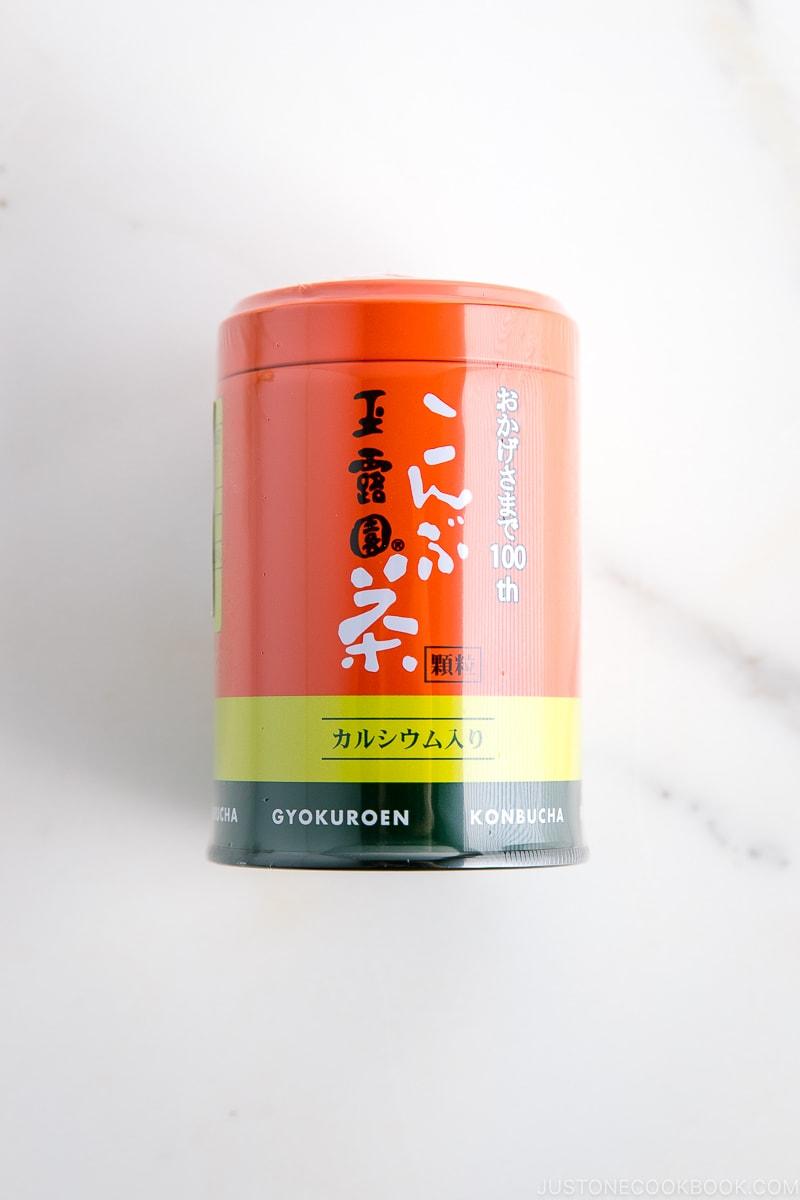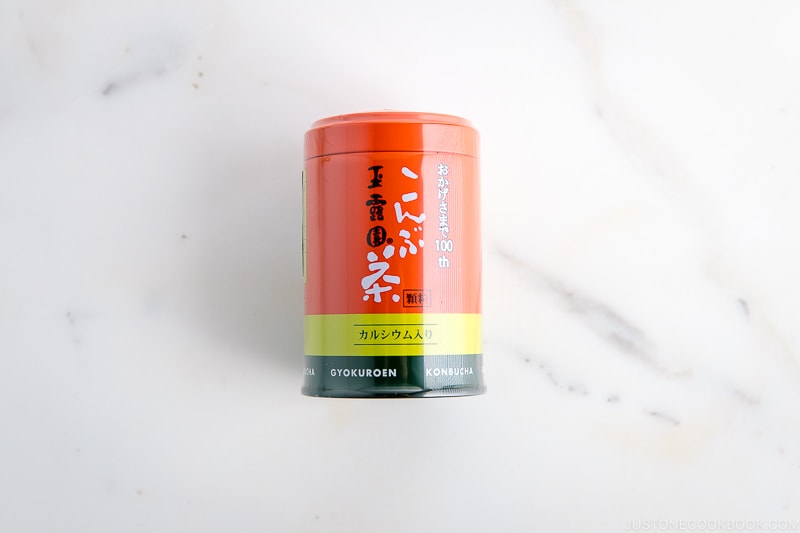
Kobucha (Kombucha)
Kobucha, or Kombucha, is a seaweed tea consisting of kombu kelp. The umami-rich ingredient is drunk as tea or used in cooking. It also offers many health-promoting benefits.

Kombucha/Kobucha (昆布茶) is a hot beverage consisting of kombu seaweed. It’s an umami-rich beverage sold in granulated form or in small strips to make tea or use as a seasoning.
What Is Kombucha/Kobucha
Kombucha, Kobucha, or kelp tea, is a savory “tea” consisting of kombu. Some contain green tea, tiny rice crackers (arare あられ), and freeze-dried umeboshi plums for additional flavor. It’s an umami-rich beverage full of konbu glutamine and asparagine umami deliciousness. Commercial kombucha usually contains sugar, salt, and MSG, although you can also find kombucha without them.
The Japanese drink it as tea, hence the suffix “cha” (茶 means tea), but it is also used as a seasoning. It does not contain caffeine.
Although the spelling is the same, it’s NOT Kombucha, the fermented drink known as red tea mushroom.
What Does It Taste Like
It’s savory with a slight sweetness.

How To Use
To prepare the hot drink, dissolve a teaspoon of the powder or steep the kombu pieces in hot water. The instant soup is great to warm up on cold days.
You can also use it as sprinkle seasoning. Use it to make quick Japanese pickles called asazuke 浅漬け, to season wafu pasta, stir-fries, the base for ochazuke, or as a soup base replacing dashi granules. You could also sprinkle it over salads and steamed vegetables.
Where To Buy
It’s usually located in the tea section in Japanese and Asian supermarkets. I use this brand.
How To Store
Keep it in a dry place, away from humidity and moisture.
Health Benefits
Konbucha offers many health benefits that may aid with weight loss and boost your health.
The glutamic acid and dietary fiber can help you feel full for longer. Glutamic acid is an amino acid that can help suppress fat accumulation and activate the brain. In addition, dietary fiber is a nutrient that absorbs water in the intestines, swells, and flows slowly through the digestive tract. Therefore, drinking kombucha makes it easier to feel full and prevents overeating.
The fucoxanthin in kombu helps burn fat and convert the energy into body heat. Fucoxanthin is a carotenoid abundant in seaweed.
Alginic acid is a plant-derived slimy component contained in seaweed that can lower blood cholesterol.
Kombucha also contains a lot of potassium, which can regulate bodily fluids and eliminate swelling.
Substitutions
You can substitute it with salt or soy sauce. However, you will miss out on the umami kick that kombucha offers.
Wish to learn more about Japanese cooking? Sign up for our free newsletter to receive cooking tips & recipe updates! And stay in touch with me on Facebook, Pinterest, YouTube, and Instagram.
Link nội dung: http://thoitiet247.edu.vn/kobucha-a43820.html